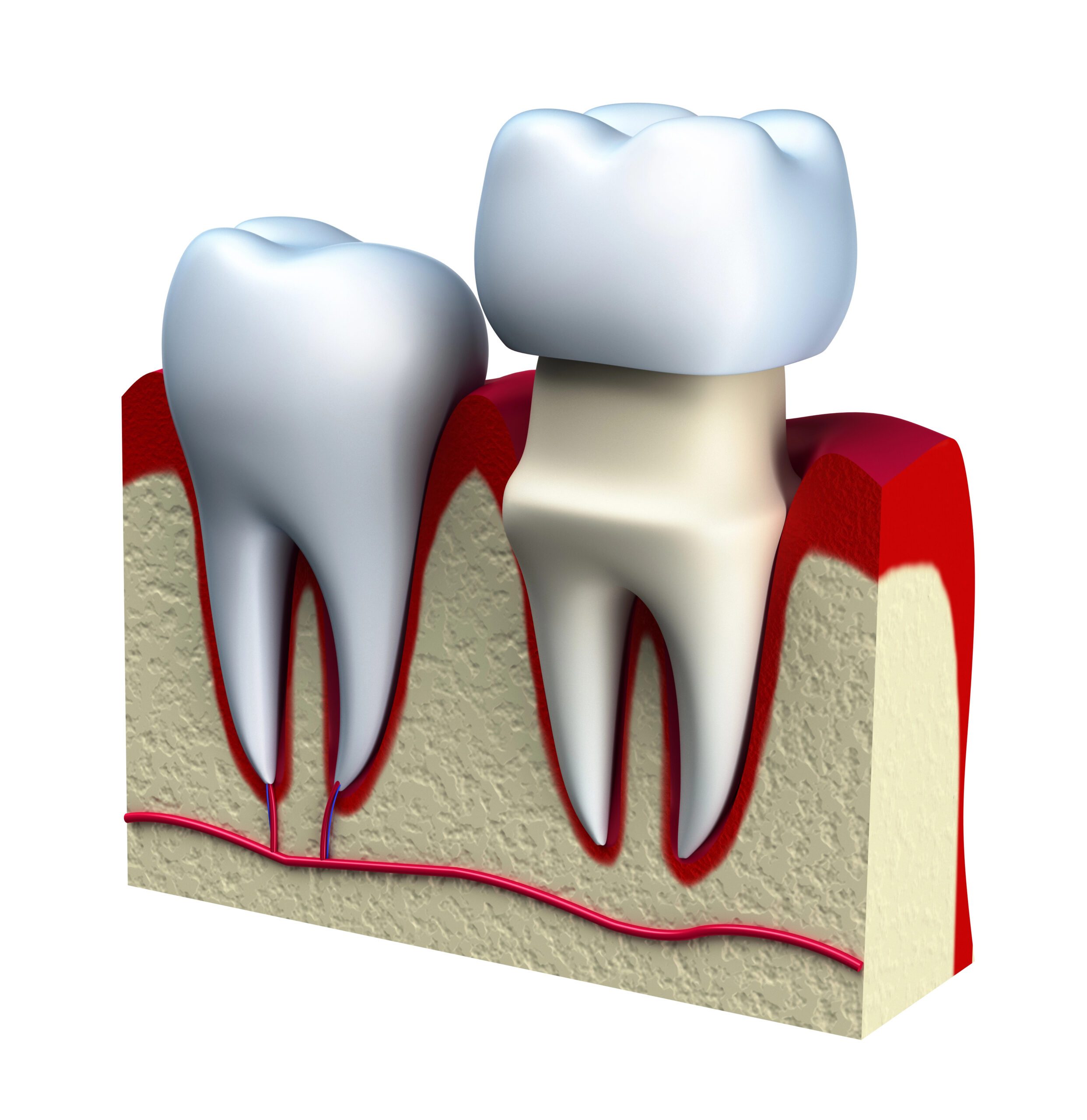Dental Crowns:
Protecting and Restoring Your Teeth

What Exactly Is a Dental Crown?
A dental crown is a tooth-shaped covering that goes over your entire natural tooth, from the gum line up. It’s custom-made to match your other teeth in size, shape, and color, so it looks completely natural.
Crowns can be made from different materials:
- Porcelain: Looks most natural, great for front teeth
- Porcelain-fused-to-metal: Strong and natural-looking
- Metal alloys: Very durable, usually used for back teeth
- All-ceramic: Metal-free option for those with allergies
When Might You Need a Crown?
We typically recommend crowns when:
- A tooth is too damaged for a filling to restore it properly
- You’ve had a root canal (the tooth needs extra protection)
- A tooth is severely worn down or cracked
- You want to improve the appearance of a misshapen or discolored tooth
- You need to anchor a dental bridge
The Crown Process: Step by Step
First Visit (Preparation)
- We’ll numb the area so you’re comfortable
- Remove any decay and shape the tooth to make room for the crown
- Take impressions or digital scans of your teeth
- Place a temporary crown to protect your tooth
Between visits
Your permanent crown is custom-made in a dental lab (usually takes 2-3 weeks).
Second Visit (Placement)
- Remove the temporary crown
- Check the fit and appearance of your new crown
- Make any necessary adjustments
- Cement the crown permanently in place
What to Expect After Getting a Crown
Getting a crown usually takes two appointments:
Immediately after
Your mouth may feel numb for a few hours. Once that wears off, your crown should feel natural.
First few days
You might experience some sensitivity to hot or cold, which should subside quickly.
Long-term
Your crown should feel just like a natural tooth. You can eat, chew, and brush normally.
How Long Do Crowns Last?
With proper care, crowns typically last 10-15 years or even longer.
Their lifespan depends on:
- Your oral hygiene habits
- Whether you grind your teeth
- What you eat and drink
- Regular check-ups and cleanings
Caring for Your Crown
Good news –
You care for a crown exactly like a natural tooth:
- Brush twice daily with fluoride toothpaste
- Floss daily (yes, you still need to floss around crowns!)
- Come in for regular check-ups and cleanings
- Avoid chewing on hard objects like ice or pens
Investment and Insurance
Crown costs vary depending on the material and complexity of your case, typically ranging from $800-$1,500. Most dental insurance plans cover a portion of crown treatment, especially when it’s needed for functional reasons.
We’ll always:
- Check your insurance coverage before treatment
- Provide a clear estimate of your out-of-pocket costs
- Discuss payment options if needed
Common Questions About Crowns
Is a Crown Right for Your Situation?
We believe you should understand all your options before making any decisions about your dental health.